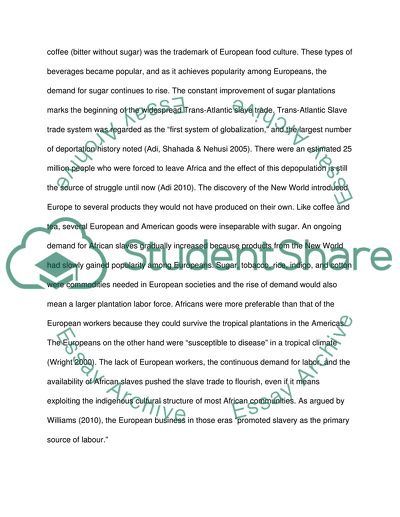Cite this document
(“Black Profit: Economic Reasons of the Trans-Atlantic Slave Trade and Essay - 4”, n.d.)
Black Profit: Economic Reasons of the Trans-Atlantic Slave Trade and Essay - 4. Retrieved from https://studentshare.org/macro-microeconomics/1572922-final-paper
Black Profit: Economic Reasons of the Trans-Atlantic Slave Trade and Essay - 4. Retrieved from https://studentshare.org/macro-microeconomics/1572922-final-paper
(Black Profit: Economic Reasons of the Trans-Atlantic Slave Trade and Essay - 4)
Black Profit: Economic Reasons of the Trans-Atlantic Slave Trade and Essay - 4. https://studentshare.org/macro-microeconomics/1572922-final-paper.
Black Profit: Economic Reasons of the Trans-Atlantic Slave Trade and Essay - 4. https://studentshare.org/macro-microeconomics/1572922-final-paper.
“Black Profit: Economic Reasons of the Trans-Atlantic Slave Trade and Essay - 4”, n.d. https://studentshare.org/macro-microeconomics/1572922-final-paper.


